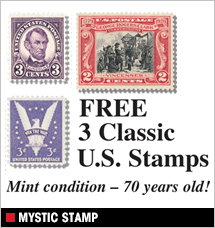
Dear Jonathan: What is the annual gift tax exclusion amount for 2016?
Jonathan Says: The annual gift tax exclusion amount for 2016 remains unchanged at $14,000. This means that an individual can make gifts in 2016 of up to $14,000 to an unlimited number of people without any gift tax consequences. Married couples can make gifts of up to $28,000 per person in 2016.
Dear Jonathan: Is there a limit in the amount of annual exclusion gifts a person can make during a year?
Jonathan Says: No, there is no limit in the number of annual exclusion gifts a person can make in any given year. A person or a married couple can make annual exclusion gifts of $14,000 or $28,000, respectively, to as many people as they want without any gift tax consequences. For example, if a person has four children who are married and 16 grandchildren, then he could make gifts of $14,000 (or $28,000 if he is married and his wife joins in the gifts) to each of those 24 individuals.
Dear Jonathan: What is the lifetime gift tax exemption amount for 2016? What is the estate tax exemption amount for 2016?
Jonathan Says: The lifetime gift tax and the estate tax exemption, which is a combined exemption known as the unified credit, for 2016 is $5,450,000 for an individual and 10,900,000 for a married couple, which is a slight increase over 2015’s amounts of $5,430,000 and $10,860,000, respectively. This means that an individual can give away up to $5,450,000 and a married couple can give away up to $10,900,000 through lifetime gifts or death transfers without incurring any gift or estate tax consequences.
Dear Jonathan: What happens if I make a gift in excess of $14,000 in 2016?
Jonathan Says: The amount of the gift you make in excess of $14,000 will be deemed to be a taxable gift and you will need to file a gift tax return with the IRS, reporting the gift. For example, if you make a gift of $25,000 to someone this year, $14,000 of that gift would be gift-tax free, but the remaining $11,000 would be a taxable gift for which you would need to file a gift tax return.
Dear Jonathan: If I am single, what happens if my estate exceeds the estate tax exemption amount when I die?
Jonathan Says: The first $5,450,000 in value of your estate would be exempt from federal estate taxes. Any amount in excess of the exemption amount will be taxed at a flat rate of 40%. For example, if you were to die this year leaving an estate valued at $8,000,000, then after deducting the exemption amount of $5,450,000, the remainder ($2,550,000) will be taxed at the rate of 40%, which would result in a federal estate tax of $1,020,000.
Jonathan J. David is a shareholder in the law firm of Foster, Swift, Collins & Smith, PC, 1700 East Beltline, N.E., Grand Rapids, Michigan 49525.



























































